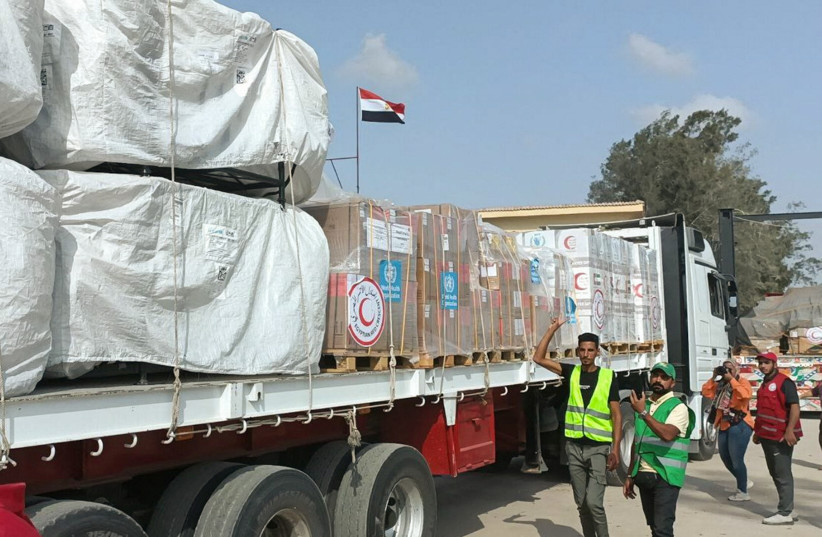There’s a high risk of famine in northern Gaza despite steps Israel has taken to improve the entry and distribution of humanitarian assistance into that enclave, US Envoy for Middle East Humanitarian Issues David Satterfield told reporters in Washington on Tuesday.
“More must be done, though, to ensure that assistance is effectively and efficiently moved” not just in southern and central Gaza, but also “in the north,” Satterfield said.
“The population in the north is in particular threat of malnutrition, wasting famine – and there, all too little aid had come in until the last several weeks,” he said.
Nearly 100 trucks a day have been moving into the north, he said, as he assessed the overall humanitarian situation.
There has been a dramatic improvement in the number of trucks entering Gaza and the distribution of the aid they carry, the envoy said.
'Israel's significant steps in the last two and a half weeks'
“Israel has taken significant steps in these last two and a half weeks,” Satterfield said, explaining that the land crossings into Gaza would be augmented within weeks by a sea route, with the help of a floating maritime port that the US is building.

The UN, he said, has also been able to get more trucks into Gaza to help with distribution, and improvements have been made in the communication systems between the Israeli army and organizations working in Gaza.
The US has worked intensely with Israel to set up “a mechanism that works in real time between humanitarian actors on the ground” and the IDF, Satterfield said.
He noted that a problematic communication system had contributed to the IDF strike that accidentally killed seven aid workers from the World Central Kitchen earlier this month.
The WCK “did not have the types of communications systems that could have provided redundancy during that terrible event,” he said.
“It is essential those redundant systems with different technical operating parameters be provided,” Satterfield explained, adding that an improved system had been authorized.
After the WCF deaths at the start of this month, the Biden administration had warned Israel that it would change its Gaza policy unless the IDF took steps to vastly improve the humanitarian situation in Gaza.
When pressed as to whether Israel had done enough to meet American demands, Satterfield said he had no intention of placing a grade on the situation. “This isn’t a gotcha test,” he said: “Progress is being made, but I am not going to stand here and give you a grade on that; more needs to be done.”
The humanitarian envoy also dismissed a question about how he would compare Hamas’s humanitarian policy to that of Israel.
“Excuse me,” he asked, in response to the question.
“The fundamental actor responsible for the suffering here is a terrorist group — Hamas,” explained Satterfield, who is specifically tasked with humanitarian issues relating to Gaza.
“The fighting in Gaza [and] the suffering of the Palestinian people could end tonight, if Hamas chose to accept the deal for the release of hostages in the establishment of a ceasefire. And that ceasefire could, with further releases, be sustained.
Satterfield said that as someone who has been working for 40 years on Arab-Israeli and Palestinian-Israeli issues, it was clear to him that Hamas could have chosen to accept the principles of peace first laid out under the Oslo Accords and then by the Quartet: the US, UN, EU and Russia.
“Hamas, for its own ideological and political reasons,” has favored violence as a method to pursue its own ambitions, he said.
“The greatest victims of this had been Palestinians themselves, not just the Israelis who were massacred on October 7 in that paroxysm of bestial violence. Hamas still has a choice,” Satterfield said.
“Hamas has spent 17 years in expending every resource provided for the people of Gaza for its own purposes in constructing a network of military facilities [and] tunnels, embedded in, under [and] around humanitarian facilities, as a deliberate act of preservation and advancement of their interests.
“Hamas has sacrificed thousands of innocent Gazans,” the envoy said, adding that it “first and foremost victimizes Palestinians and their future,” which is why they are considered to be a terror organization.
